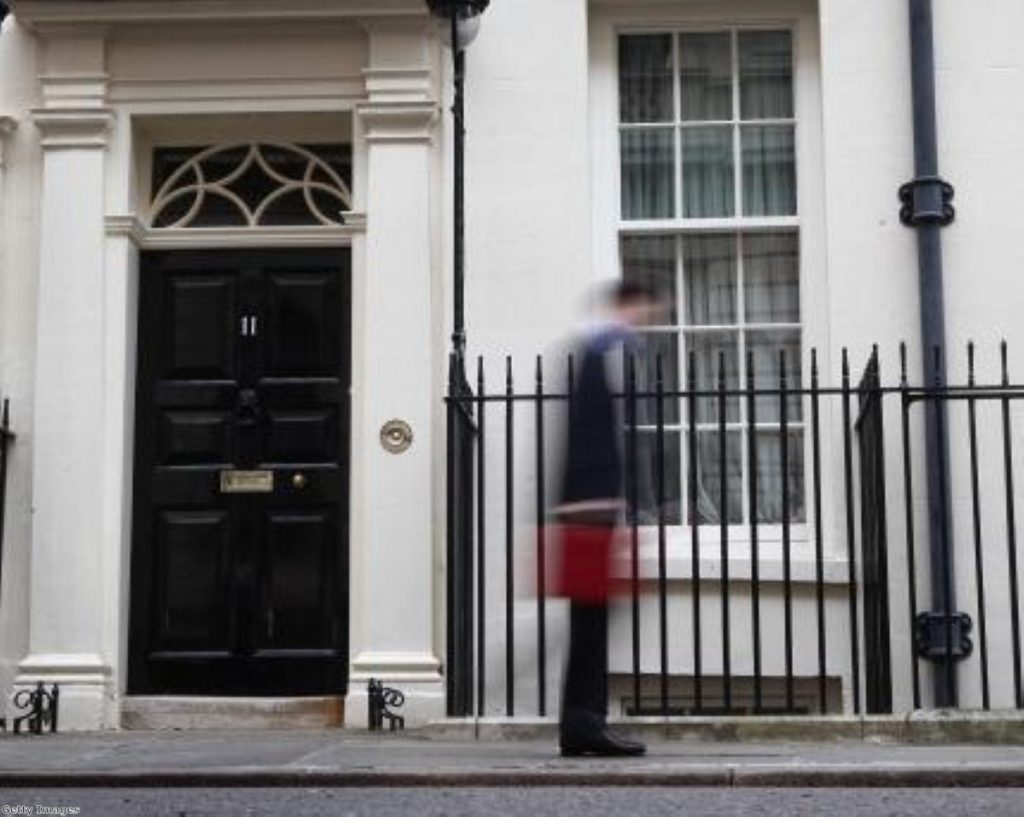Osborne’s Budget gambit: The end of ‘we’re all in it together’?
By Ian Dunt Follow @IanDunt
George Osborne was accused of prioritising a tax cut for millionaires today, after he cut the top rate of income tax from 50p to 45p.
In a dramatic Budget statement to the Commons, the chancellor insisted the tax brought in just £100 million and that he would bring in five times as much from the rich by changes to stamp duty and other measures.
"Every time in the future he tries to justify an unfair decision by saying times are tough, we'll remind him he chose to spend hundreds of millions of pounds on those who need it least," Ed Miliband responded.


"Those earning £1 million a year would receive a £40,000 tax cut due to the Budget," the Labour leader argued.
Amid scenes of uproar in the Commons, Mr Miliband demanded to know if the tax cut would benefit Mr Osborne himself.
"Let's have some tax transparency," he said.
"Here's the challenge – nod if you're going to benefit from it and shake if you're not."
Turning to deputy prime minister Nick Clegg he said: "Only the Liberal Democrats could be dumb enough to think a George Osborne Budget could be a Robin Hood Budget. They should be ashamed."
Mr Osborne said Revenue and Customs (HMRC) and the independent Office for Budget Responsibility (OBR) had both agreed on his figures about the money being brought in by the 50p top rate of tax on those earning £150,000 or above.
He insisted that by closing tax avoidance loopholes on stamp duty and driving up the duty on properties worth over £2 million to seven per cent, he could bring in five times as much as the funds brought in by the top income tax rate.
The coalition will hope that by showing that more funds will be received overall, they can escape the inevitable political attacks from Labour. But the opposition are likely to argue that thousands of already rich families will be the biggest winners from today's Budget and lose nothing from changes to stamp duty.
Some 4.5 million pensioners are also expected to be worse off due to Mr Osborne's decision to freeze personal allowance for the over-65s.
The chancellor announced help for low earners, with a speeding-up of efforts to take those earning less than £10,000 out of income tax altogether. This is now set to be accomplished by 2014, a year earlier than planned, with those earning up to £9,205 being taken out the income tax system by April.
The chancellor said the move would see the income tax bill of those working full time on minimum wage cut in half.
"This Budget rewards work," Mr Osborne said.
"Together, the British people will share in the effort and share the rewards. This country borrowed its way into trouble and now we're going to earn our way out."
Most of the elements of the Budget had been pre-announced in an unprecedented series of leaks, with very few announcements surprising parliamentary observers.
The chancellor said there would be a further one per cent cut in corporation tax in addition to the year-on-year consecutive cuts already announced, bringing it to 24% next month.
There will also be a film tax credit to encourage filmmakers to pick the UK and keep British productions at home.
That move saw the chancellor joke that he wanted to "keep Wallace and Gromit exactly where they are" – a reference to Tory backbenchers' nicknames for Mr Miliband and shadow chancellor Ed Balls.
Mr Miliband hit back by saying the chancellor had watched too much Downton Abbey, which features rich upper class families and their hard working servants in turn-of the century Britain.
"We all know it's a costume drama. They think it's a fly-on-the-wall documentary," Mr Miliband said.
Motorists will be disappointed to find there was no cut to fuel duty and smokers will be angered by a massive five per cent rise in VAT on tobacco products, which will put an extra 37p on a packet of cigarettes from 18:00 GMT tonight.
Mr Osborne announced that new OBR economic forecasts were slightly more optimistic than before, with the independent analysts predicting the UK would not fall back into recession. The OBR are forecasting two per cent growth next year, 2.7% in 2014 and three per cent in the two years that follow.
The announcement that combat operations in Afghanistan would be reduced ahead of the 2014 timetable saw the chancellor forecast £2.4 billion savings over the cost of the parliament – although the war is financed via reserve funds, not the defence budget.
He raised the prospect of 'perpetual bonds' to take advantage of historically low interest rates on state borrowing.
VAT would be imposed on a host of new items, such as loaned chairs in hairdressing salons and sports nutrition drinks.
Taxpayers will receive statements from the Treasury showing precisely how much tax they are paying and what it is being spent on.









